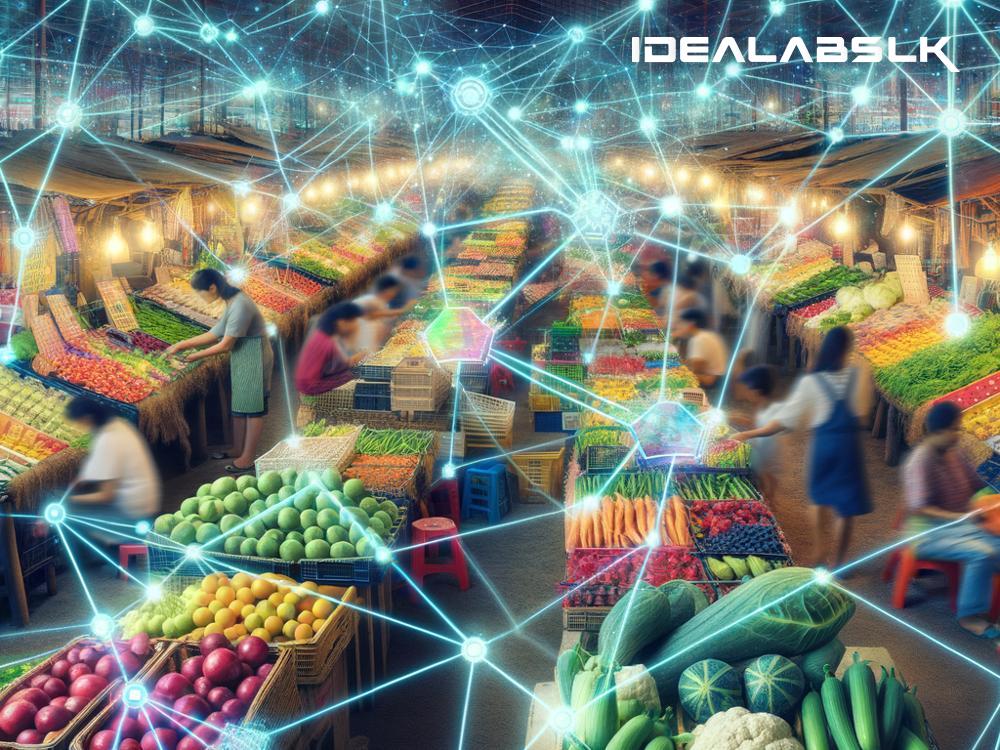Blockchain to Support Local Food Marketplaces: A Simple Guide
In recent years, there's been a growing interest in where our food comes from. More and more people are choosing to buy their groceries from local farmers markets instead of big supermarkets. Why? Because they want fresh, tasty, and sustainable options. Enter blockchain technology, a digital ledger known for its strong security and transparency. Though it might sound complex or heavily associated with cryptocurrencies like Bitcoin, blockchain can play a surprisingly friendly role in boosting our local food markets. Let's break it down into simpler terms and see how this works.
What is Blockchain?
Imagine a digital notebook that everyone can view, but no one can tear a page out of or scribble false information on. That's blockchain for you. It's a series of blocks (digital information) chained together in a public database. Each block contains details of transactions, and once a block is added to the chain, the information is pretty much there to stay. Because of its structure, it's very secure and makes it easy to see the history of transactions.
Boosting Trust and Transparency in Local Food Markets
One of the most significant benefits of using blockchain in local food markets is the increase in trust and transparency. How many times have you wondered if the "organic" label on your food is indeed valid? Blockchain can solve this by providing a transparent record from the farm to your table. Each step of the process (from planting seeds to selling them at your local market) can be recorded and verified on the blockchain. This way, you as a consumer can be sure about the quality and origin of your food.
Reducing Food Fraud
Food fraud is a real problem. It involves selling low-quality food as high-quality products. Thanks to blockchain, each product can carry its digital passport, showing where it was grown, when it was harvested, how it was transported, and more. This level of detail makes it much harder for dishonest sellers to pass off inferior products as something they're not.
Making Food Supply Chains More Efficient
Blockchain can also make our food supply chains more efficient. By having a detailed, unchangeable record of each product's journey, it becomes easier to identify where delays or problems occur. For example, if a batch of fruit gets contaminated, blockchain records can swiftly pinpoint where it happened. This not only saves time and money but can also prevent foodborne illnesses from spreading.
Empowering Small Farmers
Local and small-scale farmers often get the short end of the stick when it comes to selling their products. Blockchain can change this by giving them a platform to prove the quality and origin of their goods. This can lead to better prices and more direct relationships with consumers. Moreover, blockchain's efficiency in managing transactions can reduce costs and barriers to market for these farmers, allowing them to compete more effectively with bigger agriculture businesses.
Challenges and Considerations
While blockchain has the potential to revolutionize local food markets, there are challenges to consider. The technology is still relatively new, and implementing it requires technical know-how and investment. There's also the question of accessibility — ensuring farmers and consumers at all levels have the tools and understanding to engage with this technology is crucial for its success.
Looking Ahead
As we move forward, the integration of blockchain into our local food markets represents a promising step towards a more transparent, efficient, and equitable food system. By empowering consumers to make informed choices and giving farmers a fair platform to showcase their products, blockchain can help us build a stronger connection with our food and where it comes from.
In conclusion, the journey of our food from farm to plate is becoming more transparent and trustworthy, thanks to blockchain technology. As we continue to value local, quality products, embracing such innovations can lead to a healthier society and a more sustainable world. So, the next time you enjoy a meal made from locally sourced ingredients, remember that blockchain might just have played a part in bringing that food to your table.

